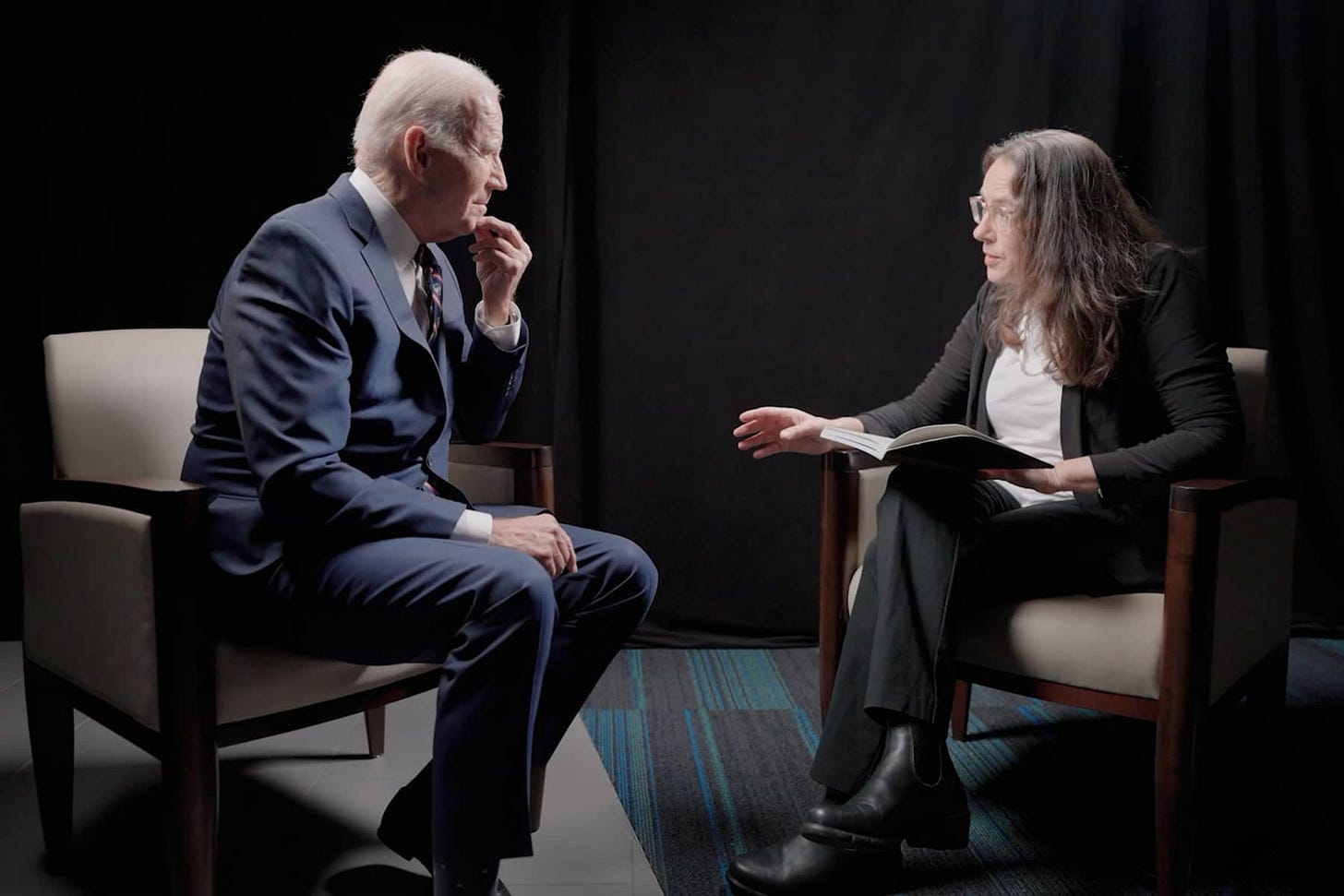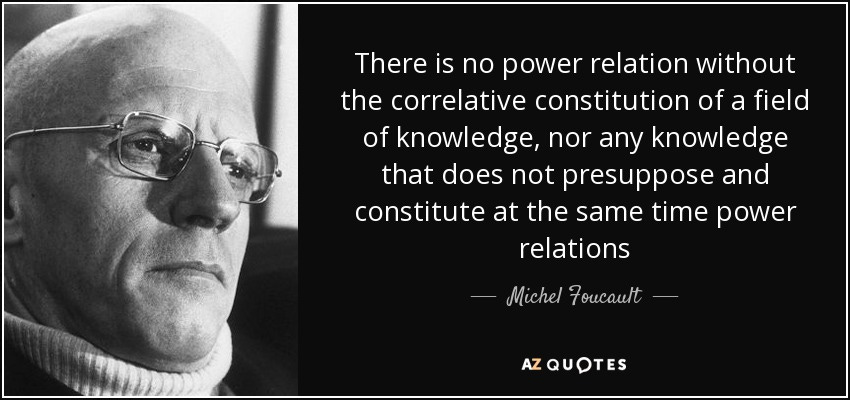A handful of years ago, around the time of the pandemic, I started following the Facebook page of a public figure named Heather Cox Richardson. I must have initially liked something she wrote. Since I’ve always been against Trump, and Heather has spent much of her time keeping track of Trump and doing critical analysis of him, I probably liked something she said about Trump and then pressed like on her page. She essentially has been a viral presence online in recent years. She has literally a million and a half followers on her Facebook page and on her Substack.
Heather Cox Richardson is a liberal historian who started cathartically writing after Trump had risen to power. And in some ways, she is legitimately informative and often peppers her writings with references to American history. She essentially has become one of the premier public intellectuals who closely follows Trump and current events in American politics, and she came to literally write daily journals about it. As such she has produced quite a large output of material.
It was not long, however, before I came to actually become quite annoyed by her writings. It started to seem like she can’t do criticism of Trump and the GOP without simultaneously doing apologetics for Biden and the Democrats. It became clear that she has a strictly partisan liberal Democrat perspective on politics that does not engage with political thought outside the Overton Window of establishment consensus, that she does not have systemic or structural critiques of US politics, that her historical knowledge and perspective was US centric, and that for all her historical knowledge, she is underinformed on political philosophy and economics.
It also was observable that her comments section was an endless sea of yes-men who profusely thanked her for interpreting what’s going on in the world for them, and for giving them “hope” regarding her narratives on the Biden administration and the state of the economy. It became obvious that she was effectively functioning as a mouthpiece for Biden administration propaganda. Her page looks like a mainstream liberal echo chamber. If once in a blue moon someone in her comments section, even if they were a liberal themselves, asked tough questions or brought up a counterpoint that might modify her narrative, they were mobbed by her followers and automatically assumed to be a Trump supporter or a conservative. Not exactly a real discussion.
I attempted this myself a number of times, while making a point to emphasis that I’m a lefty, only to be mobbed by snarky people. Then one day I found that I could no longer access her page because she, or whoever moderates her page, had blocked me from it! That says a lot. As part of her narrative, Heather positions herself as fighting “disinformation”, and while there certainly is a “disinformation” problem out there, Heather was presenting her partisan liberal Democrat *interpretations* of current events as a hegemonic truth. Or to use the postmodernist’s terminology, a “metanarrative”. It would seem that the only alternative to Trumpism that Heather can imagine is simply an acceptance of status-quo-ism. Her worldview is binary.
From the perspective of Heather’s narrative, either you take the red pill (Republican, pro-Trump, pro-Putin, pro-Authoritarianism, foreign disinformation, the South’s side of the civil war, the Robber Barons, the opponents of the civil rights movement), or you take the blue pill (Democrat, liberal, pro-Biden, pro-Democracy, the North’s side of the civil war, the early 20th century progressives and FDR’s reforms, the post-WWII establishment consensus, “the right side of history” on civil rights).
This is an oversimplistic and misleading way to look at things. And I would posit that the alternative to these two options is not necessarily “something in between”, but something independent of either of them, as both options are a loaded package deal. The way that Heather presents this binary choice, I would choose to take neither pill. Not because I don’t generally support civil rights and democracy, for example, but because of what she completely leaves out of the picture - a critical look at the problem of the state in general, a critical look at the problem of capitalism in general, a relatively neutrally grounded look at foreign policy conflict, and any substantive consideration for the history and theory of alternative viewpoints that are neither a liberal Democrat position or a conservative Republican position.
I don’t typically use the term “red pill” because it has been utilized by many to specifically refer to gender politics, signaling general alignment with male identity politics and anti-feminism, as well as often referring to conservative conspiracy theory stuff. The original usage of the metaphor from the matrix is how I’m using it here for my own purposes, where the blue pill represents accepting a false reality of willfully ignorant comfort, and as a political metaphor, it represents a passive acceptance of the mainstream narrative on everything and the status quo.
In this regard, I would characterize Heather’s narrative as the blue pill. Blissfully ignorant status-quo-ism. Copium. Comforting illusion. Naivety about systemic and structural political and economic problems. And if by the red pill we generally mean accepting hard truths and taking a deeply critical look at things, yes, give me the red pill. I would rather be cynical and jaded, armed with uncomfortable truths, than blissful and ignorant, eating gruel and saying it’s tasty. To paraphrase Slavoj Zizek, you have to understand how fucked you are before you can properly change the world.
Let’s dig a bit deeper into why this is and put on the ideology detection glasses.
Theory, History, Facts and Interpretations
In many ways, Heather’s perspective could be described as a type of American Civic Nationalism, and she approaches history in much the same way as what was called Social Studies class when I was a kid. For my parent’s generation, it was simply called Civics. Of course, as a professional historian, Heather goes into much more detail than what you would learn in an elementary or middle school social studies class. This is part of what produces Ooo’s and Aaa’s from her followers. And certainly, there are things that can be learned from her accounts of American history.
It must be noted that her specialization is, indeed, U.S. history. Which is all well and good, but it does open the question of how qualified she may be to comment on history outside the U.S., and it is notable how she brands herself as writing “Letters from an American”. I am not necessarily interested or qualified to make scruples with her about general facts about U.S. history. What is worth pointing out, however, is that there is a difference between facts and interpretations, and that there are a multitude of interpretations of history, U.S. history and otherwise.
Most historians may very well tend to agree on certain facts, for example, that Abraham Lincoln was shot and killed on April 14th, 1865. But Heather is not merely stating facts, she is giving interpretations and crafting ideological narratives. Reading many of her writings, she will often take you on a journey through 19th and early 20th century American history, then jump to the present and find a way to connect it to current events. And it certainly is true that it is important for us to be aware of the past so that we can better understand the present.
But it is not always clear how she makes the leap from her historical anecdotes to the interpretations of current events and ideological narratives that she spins out. Nor is there a universal consensus on the history that she talks about. For example, she speaks of FDR in much the same way as what we were all taught in school. Gabriel Kolko gives a different interpretation. Is he wrong because it’s not the commonly recognized story? That’s a judgement call that requires deliberation on our part.
Historical interpretation is inherently fragile and involves subjective political and moral judgements. And consensus is not inherently true in science. It can be and has been overturned before. Historical revisionism is a thing. Where the line between historical revisionism and conspiracy theory is can sometimes get blurry. But it isn’t true critical thinking to simply accept all conventional wisdom either. This is a touchy matter to be treated with care, no doubt. Heather, however, hangs her hat on conventional wisdom to a fault, and her writing makes explicit that she is very concerned with maintaining “public trust” in the political establishment.
Furthermore, history is problematized by the fact that there is a relationship between knowledge and power, as our scary old bald friend Foucault extensively wrote about. What we assume to be common sense or conventional wisdom is shaped by power, and history is written from the perspective of the victors. And knowledge can be wielded instrumentally as a method of control over others. This is where things can potentially get quite complicated. Without collapsing into a full-on conspiratorial view, it nonetheless behooves us to be skeptical of given narratives, and to be wary of intellectual elites having their own interests and controlling us.
And Heather’s narrative could be seen as an apologetics for power, particularly regarding her uncritical treatment of the Democratic Party, President Joe Biden, the U.S. political establishment and the foreign policy intelligentsia. One could very well generally agree with whatever she says about Trump and the GOP, while still finding her perspective wanting. Because she brings an obvious bias to the table and does not critically discuss the problems of the Democrats, even from a left-wing perspective.
Heather also takes the classical liberal idealism and the narrative of the nobility of the founding fathers at face value. To be sure, she acknowledges that the founders were imperfect aristocrats, while speaking of America as progressively doing a better job of living up to what their ideals were supposed to be over time. But she does not dare broach the philosophical imperfections of the classical liberal narrative itself. Nor does she seem to understand that liberalism is philosophically split between its democratic pretense or tendencies and what is actually an elitist view.
In the process of this, she weaves a simplistic story about democracy vs authoritarianism or democracy vs autocracy. What’s concealed by this is the extent to which the American system by design is an oligarchy, just how little autonomy and participation is allowed to the average citizen, and how there is a sense in which the concept of democracy is used as an ideological narrative of legitimization for undemocratic power structures and how the “consent of the governed” is already presupposed by the social contract. Even Thomas Jefferson, probably one of the most radical among the founders, believed in rule by “the natural aristocracy”. The U.S. system is quite obviously modeled after the Romans, not Athenian democracy. This makes the talk about “saving our democracy” seem a bit naive.
Such heroism!
Indeed, this continues into modern forms of liberalism as manifested in the political establishment. Liberalism contains self-contradictions within it and can manifest in the form of an elitist paternalism, or an authoritarianism that is framed as being for your own good. Nor is liberalism necessarily incompatible with nationalism, wars of aggression, or anti-communist witch hunts (the Democrats partook in McCarthyism themselves), as a critical look at the Democrats own participation in such things should indicate. Heather does not grapple with these issues or tensions like a political philosopher might, because her worldview reduces politics to cliched partisanism.
Heather also weaves a simplistic story about being pro-government vs. anti-government, taking the rhetoric of conservative Republicans at their word about being anti-government, while framing liberal Democrats since FDR as overseeing a healthy government control of the economy. As an aside, it also seems odd for Heather to be so keen to venerate the founding fathers while pushing this narrative about strong government being good, because many of the founders are rife with cynical libertarian sounding sentiments against government. Surely, she has actually read Thomas Paine and Thomas Jefferson, so she must have to ignore what they said.
While Heather tells a simple story about Democrats being pro-government do-gooders and Republicans being anti-government scrooges, the general trend in the 20th century, however, has been for government power to grow under both Democrat and Republican administrations, and Republicans never have a problem with expanding the government when it comes to the military and executive power. Furthermore, the Democrats were participants in the neo-liberal turn of the 80’s and 90’s, in which the New Deal was especially destroyed. It was the Clinton administration that ushered in the big “free trade” agreements and changed welfare to be workfare, and who continued to rob the social security system. But if we were to only get our history from Heather, we wouldn’t hear about any of this. She tells half the story.
This is what is infuriating about reading Heather. She tells a do-gooder story about the Democrats, while having no critique of capitalism, no critique of the warfare state, no critique of the police state, no critique of the degenerated electoral system. She regurgitates Biden administration talking points about the economy without 2nd thought, while saying nothing about the generational wealth gap problem, the housing affordability crisis, and so on. She cites GDP stats and how the stock market is doing as a barometer for the economic health of America, while seeming to be unaware of how insulting this is to the working poor. I personally found it to be gaslighting.
In fact, Heather is so committed to Biden apologetics that she frames herself as telling you the good news that the mainstream media won’t tell you, with a persistent theme among her and her comments section being that the media just won’t report on all the good things Biden is doing. But Heather is about as mainstream media as it gets, down to doing personal softball interviews with Biden. And there’s nothing impartial about that. She is clearly a fan or cheerleader. This really takes away from the neutral, scientific pretense that she is just doing history or providing facts. She can hardly state a fact without following it with something dubious. Due to this I found that I had to sideline the bullshit in order to read her. Because there is something valid there, it’s just mixed in with status quo ideology and pollyanna politics.
In a way, what frustrates me the most is not Heather’s existence, but the fact that she has a million people hanging on her every word, just begging for a reason to stay in the matrix. If she wasn’t so viral, it wouldn’t be as worth it to address her as a concern. But she effectively is the premier propagandist for the status quo online right now. And it’s not a nefarious thing. It’s a naive thing. At some level she is bending over backwards to convince herself that the status quo is good, driven by despair of Trump.
Heather does a great job of expounding on bog standard American history that we already know the basic gist of, while leaving out the most inconvenient dirty parts and whitewashing the present as a good cop / bad cop story. She assumes that, if it were simply not for Trump, the system is fundamentally just fine. This overlooks the ways in which Trump is a product of the system not being just fine, of institutional crisis. She bemoans the consequences of an institutional crisis she fails to diagnose, and clamors to keep our “faith” in such a failing system. This is the limit of a liberal view.
The problem is that Heather basically takes “the Whig view of history”, in which the story of America is simply one of progress from bad to good, until we get to Reagen and Trump. This functions as an erasure of the ways in which there has been degeneration and regression. History does not work in terms of linear progress. As such, she can cite all the accurate historical facts she wants, and yet still have a bad theory of history. Everything that *is* in fact bad, she simply attributes to the resentment of southerners after they lost the civil war and the Republicans. This drips with bias on her part. It’s civilization vs. the barbarians for her.
As a consequence of this kind of framing, Heather yearns for the very “establishment consensus” that gave us WWI, the Cold War, the Vietnam War, the War on Terror, and the Patriot Act. The same establishment that gave us a censorious Internet 2.0 and contributes to a Cold War 2.0., not to mention the terrible situation of the Israeli-Palestinian conflict. In other words, she whitewashes history and looks at current events with one eye shut. She correctly is concerned with “rising authoritarianism around the world” but can’t account for how we got there, and the role that the Democrats have played in feeding authoritarianism.
Heather would benefit from something more like a Marxist understanding, which takes a more sober, hard-nosed approach that recognizes the bitter realities of power, untarnished by idealist pretenses. A theory of power that one might actually believe. Simplifying two factions of the ruling class as the heroes vs the villains is not a theory of power that a critically minded observer might believe. I would even posit that she could learn something from libertarian accounts of politics, which can at least look at the state from a non-partisan angle. Heck, she should read Stirner. By engaging in analysis from within the overton window, her view is necessarily woefully limited.
Foit foit foit!
History is complicated and messy. I certainly don’t lay claim to being an expert on it. But it’s inherently linked with theory and interpretation. If your theory is bad, your interpretations of history will also be lacking. Heather is a smart cookie. But maybe she could use some non-American, brutal perspectives slipped under her pillow. Take the black pill, Heather. Take the black pill. Join the philosophically adult world of the critically realist cynics. It’s a way of life. You’ll love it.








